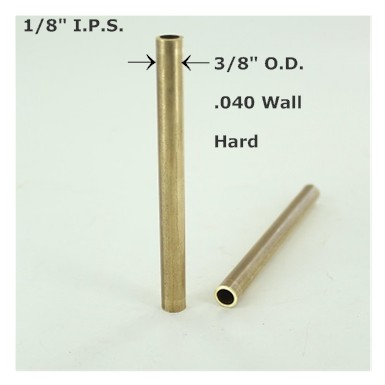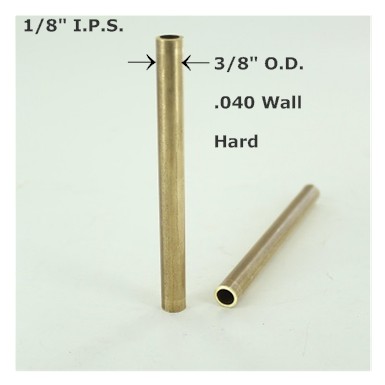Answer
Nov 12, 2024 - 07:48 AM
Please note this has a material thickness of 0.040in which may lack the necessary rigidity, especially when spanning a wide area like a shower. This could lead to sagging in the middle under the weight of the curtain, particularly if it gets wet.
Further, A thin brass rod could dent or bend more easily than a thicker-walled or solid rod, especially if it’s occasionally knocked or pulled on.
Lastly, While brass has decent corrosion resistance, a wet environment like a shower would eventually cause it to tarnish or even corrode, especially if the rod isn’t coated or sealed.
For a reliable shower curtain rod, consider a solid brass rod or a rod with a thicker wall (e.g., 0.1 inches or more) to provide the strength needed to support the weight and handle the environment. Alternatively, stainless steel, which is even more corrosion-resistant, is a popular choice for shower curtain rods.
Further, A thin brass rod could dent or bend more easily than a thicker-walled or solid rod, especially if it’s occasionally knocked or pulled on.
Lastly, While brass has decent corrosion resistance, a wet environment like a shower would eventually cause it to tarnish or even corrode, especially if the rod isn’t coated or sealed.
For a reliable shower curtain rod, consider a solid brass rod or a rod with a thicker wall (e.g., 0.1 inches or more) to provide the strength needed to support the weight and handle the environment. Alternatively, stainless steel, which is even more corrosion-resistant, is a popular choice for shower curtain rods.
 Grand Brass Lamp Parts, LLC
Grand Brass Lamp Parts, LLC

